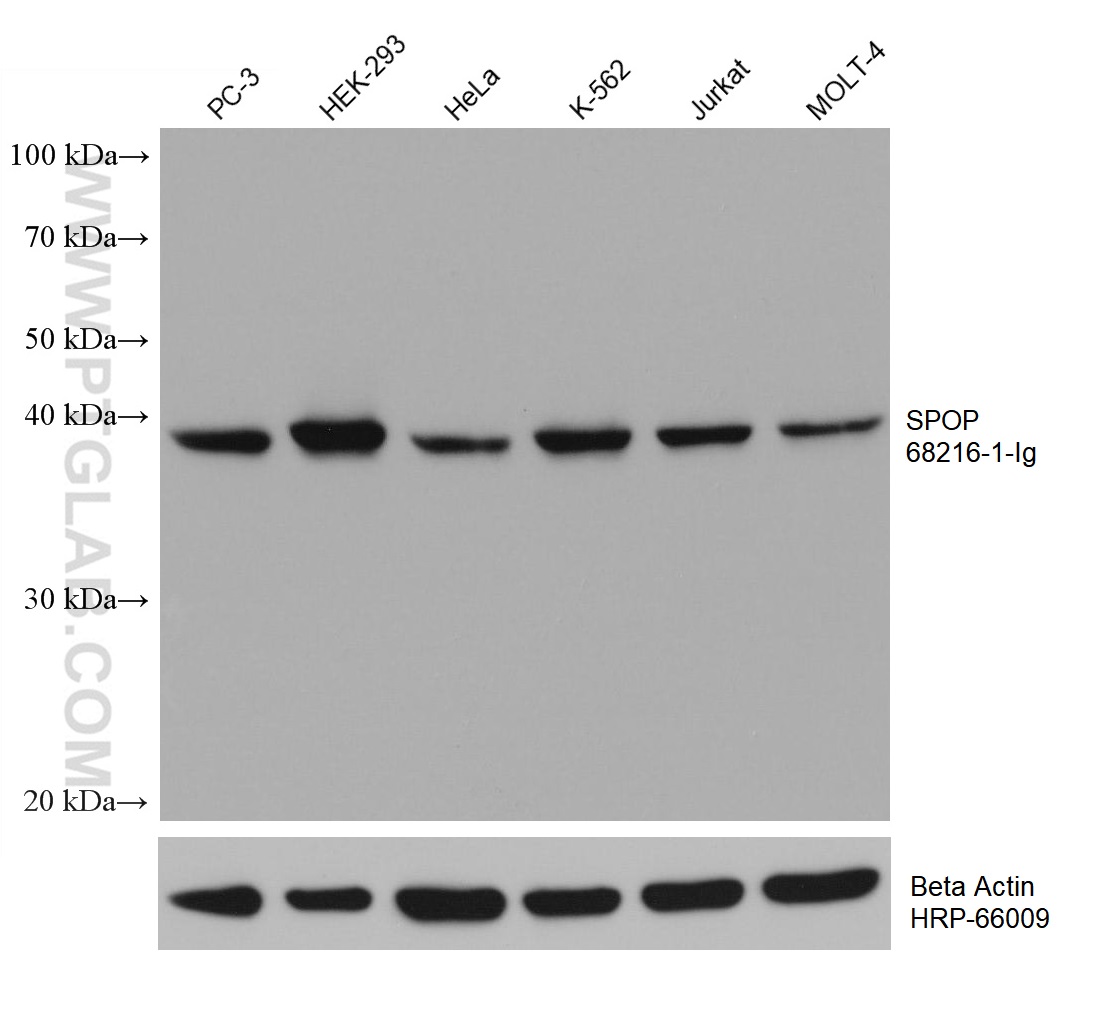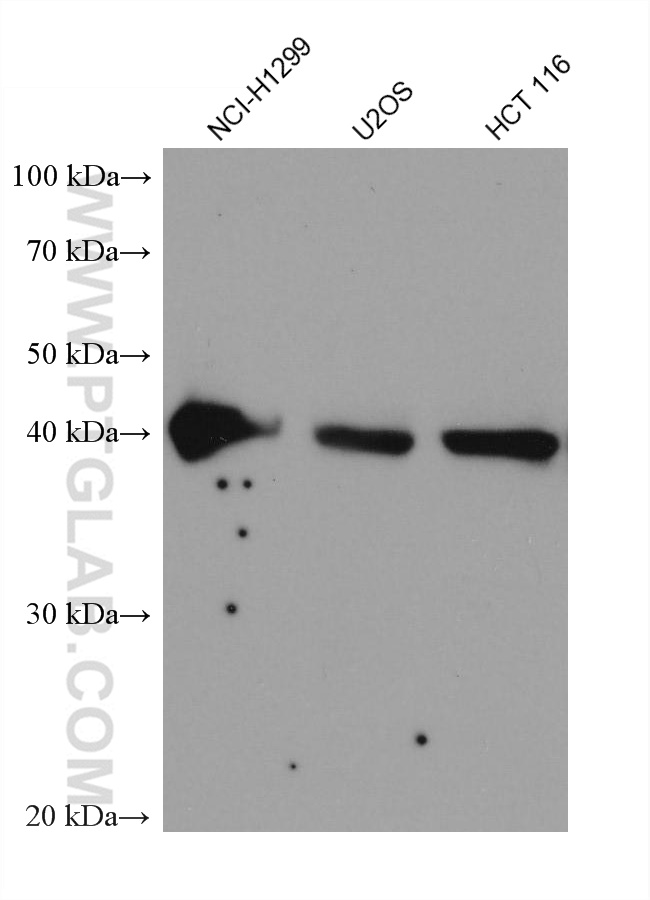验证数据展示
产品信息
68216-1-PBS targets SPOP in WB, Indirect ELISA applications and shows reactivity with Human samples.
| 经测试应用 | WB, Indirect ELISA Application Description |
| 经测试反应性 | Human |
| 免疫原 | SPOP fusion protein Ag10384 种属同源性预测 |
| 宿主/亚型 | Mouse / IgG1 |
| 抗体类别 | Monoclonal |
| 产品类型 | Antibody |
| 全称 | speckle-type POZ protein |
| 别名 | HIB homolog 1, Roadkill homolog 1, speckle type POZ protein, SPOP, TEF2 |
| 计算分子量 | 374 aa, 42 kDa |
| 观测分子量 | 42 kDa |
| GenBank蛋白编号 | BC003385 |
| 基因名称 | SPOP |
| Gene ID (NCBI) | 8405 |
| 偶联类型 | Unconjugated |
| 形式 | Liquid |
| 纯化方式 | Protein G purification |
| UNIPROT ID | O43791 |
| 储存缓冲液 | PBS Only |
| 储存条件 | Store at -80°C. The product is shipped with ice packs. Upon receipt, store it immediately at -80°C |
背景介绍
The SPOP (TEF2) protein was previously identified as an autoantigen in a patient with scleroderma pigmentosum. SPOP (speckle-type POZ protein), also known as TEF2, HIB homolog 1 or Roadkill homolog 1, is a member of the Tdpoz family containing one N-terminal MATH (Meprin and TRAF Homology) domain and one C-terminal BTB/POZ domain. SPOP can exist as a homodimer and is expressed in a variety of tissues localizing to the nucleus. BTB-mediated SPOP dimers form linear oligomers via BACK domain dimerization, and we determine the concentration-dependent populations of the resulting oligomeric species (PMID: 27220849 ). Through an interaction with CUL-3, SPOP is involved in ubiquitinylation and protein degradation. SPOP specifically interacts with CUL-3 via its BTB/POZ domain and recruits substrates to the CUL-3-based ubiquitin ligase via its MATH domain. Substrates recruited by SPOP and targeted for ubiquitylation via the CUL-3/SPOP complex include PDX-1, Bmi-1, MacroH2A, PIPK II ∫ and Daxx. These substrates are subsequently degraded by the proteasome. In addition, SPOP itself becomes ubiquitylated by the CUL-3-based ubiquitin ligase and is targeted for proteasomal degradation.

